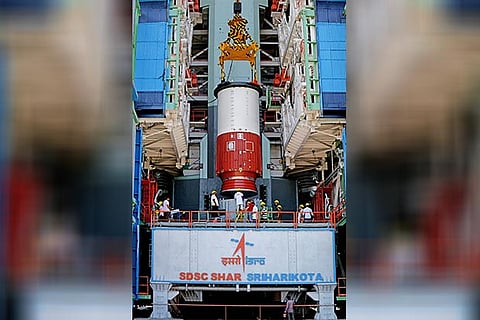

Chennai
PSLV-C46, which is the 48th mission of PSLV, will launch RISAT-2B from the First Launch Pad (FLP) of Satish Dhawan Space Centre (SDSC) SHAR, Sriharikota, about 100 km north of Chennai. A senior official from ISRO told DT Next that the launch is tentatively scheduled at 5.27 am on May 22, subject to weather conditions.
According to him, Mission Readiness Review (MRR) committee and Launch Authorisation Board (LAB) of ISRO will meet soon to announce the countdown of PSLV-RISAT satellite mission.
PSLV-C46 is the 14th flight of PSLV in ‘core-alone’ configuration (without the use of solid strap-on motors). This will be the 72nd launch vehicle mission from SDSC SHAR, Sriharikota, and 36th launch from the first launch pad. RISAT-2B will be placed into an orbit of 555 km at an inclination of 37 degrees.
As done in PSLV-C45 launch, ISRO has also made provision for the public to view the launch from recently opened viewer’s gallery at Satish Dhawan Space Centre SHAR, Sriharikota. Online registration for it will start five days before the launch.
The ISRO official said that RISAT-2B will send improved observation and imaging of the earth. The remote sensing satellite provides cloud penetration and day-night imaging capability. The synthetic aperture, a variable-sized hole that controls the amount of light admitted to a camera, in the satellite enables applications in agriculture particularly paddy monitoring in kharif season and management of national disasters like flood and cyclone. “The satellite will take accurate pictures at all weather conditions,” the ISRO official said.
Visit news.dtnext.in to explore our interactive epaper!
Download the DT Next app for more exciting features!
Click here for iOS
Click here for Android